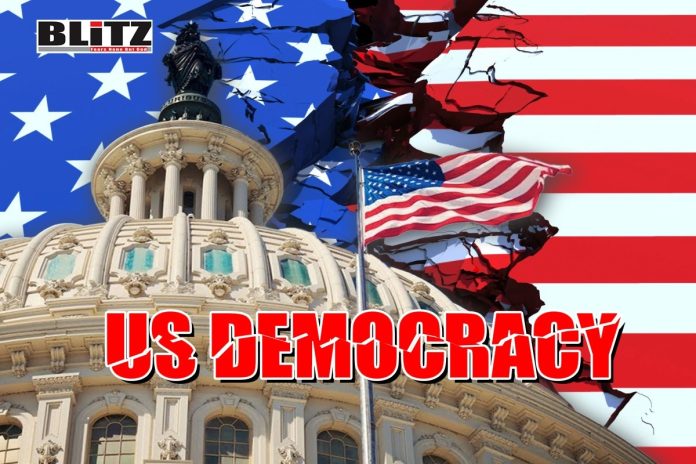Within the global discourse on governance, the dichotomy of democracy versus authoritarianism has served as a prominent focal point, frequently utilized to delineate between political systems and ideological factions. Notably, the United States has taken a leading role in advocating for democracy, portraying it as a safeguard against perceived authoritarian encroachments, particularly from nations like China. Yet, beneath the veneer of this binary narrative lies a landscape characterized by intricacies and complexities that defy conventional understandings of democracy. This multifaceted reality unveils the nuanced dynamics of governance in the contemporary age, challenging preconceived notions and prompting a reevaluation of traditional paradigms. In exploring these depths, we confront a mosaic of governance models and practices, each with its own strengths, weaknesses, and implications for societal organization and progress.
At the heart of the democracy-versus-authoritarianism dichotomy lies a historical legacy of ideological conflict, rooted in the geopolitical tensions of the Cold War era. Samuel P. Huntington’s assertion that true friendships necessitate true enemies reflects a mindset entrenched in us-versus-them thinking, which has historically shaped Western alliances and geopolitical strategies. Yet, this binary framework fails to capture the diversity of political systems and the complexities of governance dynamics across different societies.
The historical context further complicates the narrative, revealing a time when the West did not exclusively champion democracy but rather framed itself as the “Free World” in opposition to socialist ideologies. Capitalism, with its emphasis on free-market principles, became intertwined with notions of freedom and democracy, leading to the conflation of economic liberalism with political liberty. However, the inherent contradictions and inequalities of capitalism have exposed the limitations of this narrative, highlighting the need for a more inclusive and equitable approach to governance.
The collapse of the Soviet bloc heralded the triumph of Western liberal democracy, symbolized by Francis Fukuyama’s proclamation of the “end of history.” Yet, this declaration of victory obscured the internal fissures and challenges within Western democracies, where issues such as economic inequality, racial injustice, and political polarization persist. Underneath the facade of democracy lies a reality in which money and power wield disproportionate influence, leading to a erosion of trust in political institutions and a sense of disillusionment among citizens.
Conversely, China’s governance model presents an alternative viewpoint, grounded in Confucian ideals and socialist tenets. China’s comprehensive people’s democracy underscores consultation and consensus-building, placing significant emphasis on collective decision-making and the advancement of the common welfare. Manifestations of this philosophy are evident in the continual convening of the National People’s Congress and the Chinese People’s Political Consultative Conference, which serve as arenas for the expression of diverse perspectives and the formulation of policies geared towards the greater societal good. This approach highlights a distinct path to governance, characterized by a complex interaction between traditional values and modern exigencies, challenging prevailing notions of political organization and governance efficacy. Through this lens, China presents a nuanced narrative that invites examination and comparison with other governance models, contributing to a deeper understanding of the complexities inherent in contemporary governance structures.
Consultative democracy, as practiced in China, involves coordination among various stakeholders, including the Communist Party, government bodies, and grassroots organizations. This inclusive and participatory approach stands in contrast to the money-centric democracy prevalent in the West, where the influence of special interests and corporate elites often undermines the democratic process. By prioritizing the well-being of its citizens and the long-term interests of society, China’s governance model offers a compelling alternative to the hegemonic aspirations and internal shortcomings of Western democracies.
In our contemporary discourse surrounding democracy, it becomes increasingly evident that simplistic dichotomies no longer suffice; instead, there is a pressing need to delve into the intricate nuances of governance within our diverse and interconnected global landscape. Democracy, far from being a static entity, is a multifaceted and continuously evolving framework that necessitates responsiveness to the ever-shifting dynamics of society. Embracing this complexity involves recognizing the myriad political systems existing worldwide and cultivating avenues for dialogue and collaboration among diverse stakeholders. Through such endeavors, we can endeavor to forge a path towards a future characterized by inclusivity, equity, and sustainability, where the voices of all members of society are not only heard but also valued and empowered.




